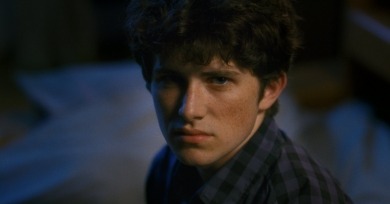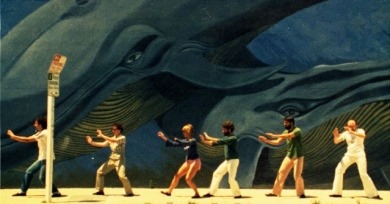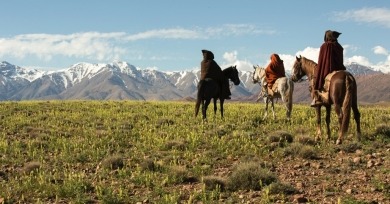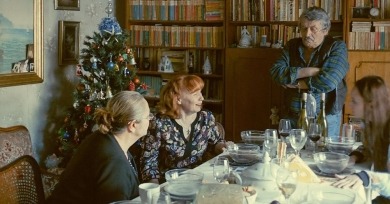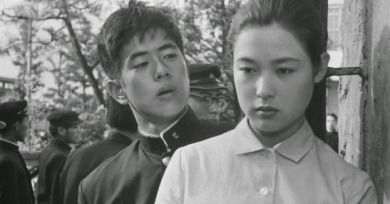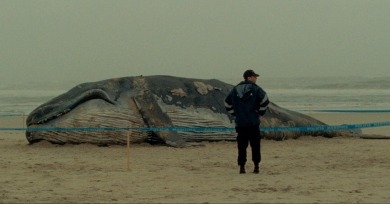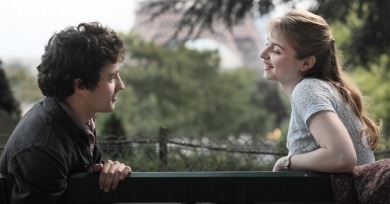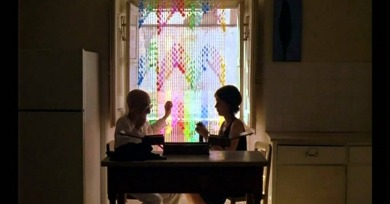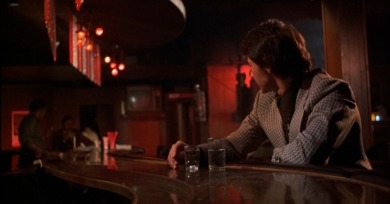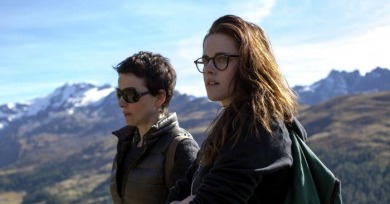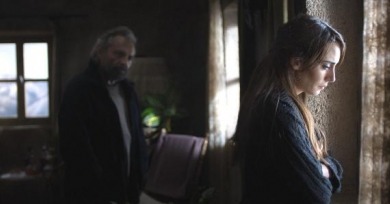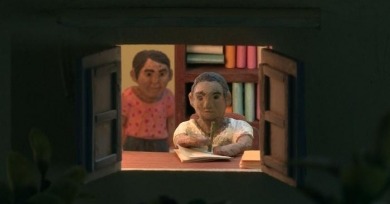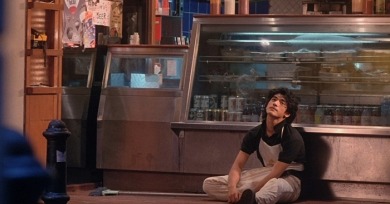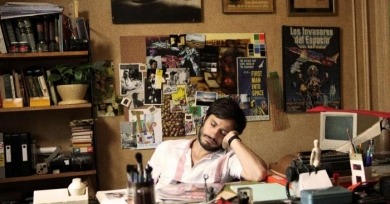Jordan Cronk
The deft deployment of overt symbolism, coupled with an empathetic attention to the emotional travails of the characters, allows the film to operate equally well as a theologic parable, an existential comedy, and an anachronistic family drama.
Adrift and alienated, yet invigorated by what she had discovered, Varda felt an immediate kinship with the underrepresented populace of Los Angeles. Channeling these conflicting feelings, Varda would produce a pair of features.
Includes Mimosas, The Death of Louis XIV, Personal Shopper, Elle.
This year’s Competition features a number of burgeoning talents as well as notable critical darlings, resulting in an uncommonly stimulating first week. On Sieranevada, Staying Vertical, Toni Erdmann, Slack Bay, Paterson.
Kämmerer has, over ten years and as many films, established himself as one of Europe’s most exciting and formally economic young filmmakers.
"The film is never going to be transferred to digital. It always has to be shown as film, and it was constructed as a palindrome, so it could be shown from either end, and you can’t really do that with digital."
Why the lapse in recognition for an artist who was not simply an inspiration for her personal and professional partner but the literal author of some of the best films ever produced in the East?
Arabian Nights is essentially composed of a series of indulgences and digressions—some angry and some absurd, all imaginatively composed and unconcerned with the boundaries of traditional storytelling.
The strain from the unfortunate state of worldwide film funding has been felt more than ever at this year’s festival. Features Louder Than Bombs, In the Shadow of Women, One Floor Below.
The quasi-autobiographical nature of Monteiro’s late work comes to a conscious conclusion with Come and Go, which unfolds like a retrospective of its lead character’s—and, by extension, its director’s—various conquests and convictions, before summoning death and ending in a kind of aural benediction.
In the spirit of its forebears, Wild Canaries is gleefully antiquated, a fully dedicated neo-screwball effort as inventively constructed and effervescently acted as any modern genre exercise.
It was the instinctive, holistically integrated flourishes of Mean Streets that would construct a working model for much of Scorsese’s future output.
David Cronenberg’s Maps to the Stars, Olivier Assayas's Clouds of Sils Maria, the Dardennes' Two Days, One Night, Lisandro Alonso's Jauja
Bertrand Bonello’s Saint Laurent, Mike Leigh’s Mr. Turner, Frederick Wiseman’s National Gallery, Abderrahmane Sissako’s Timbuktu, Nuri Bilge Ceylan’s Winter Sleep
Based on the director’s upbringing amidst the tumultuous late-1970s occupation of Phnom Penh by Pol Pot and his Khmer Rouge communist militia, the film is an intimately detailed account of one family’s struggle to survive the brutality of a movement whose reach extended well into every facet of Cambodian society.
Child’s Pose opens mid-conversation as a mother discusses her son’s personal life with another middle-aged woman sitting next to her in an anonymous room. The setting seems muted, the surroundings drab and not very homey—all in all not an unfamiliar setup for a contemporary Romanian film.
For a film so resigned to the distance, both collaterally established and self-imposed, one must traverse in an attempt at companionship, Fallen Angels is surprisingly soulful in execution.
You Ain’t Seen Nothin’ Yet proves especially fascinating for both its trapdoor narrative logistics and meta correspondences.
Even a cursory glance at our post-millennial cinematic landscape should spark a mental catalogue of our most popular concerns—those of death, decay, and, in light of the medium’s escapist functionality, our total and utter apocalypse.
The key to Larraín’s effectiveness thus far has been his ability to strategically, and from different angles, analyze issues surrounding the political stain the dictator left on Chile.
